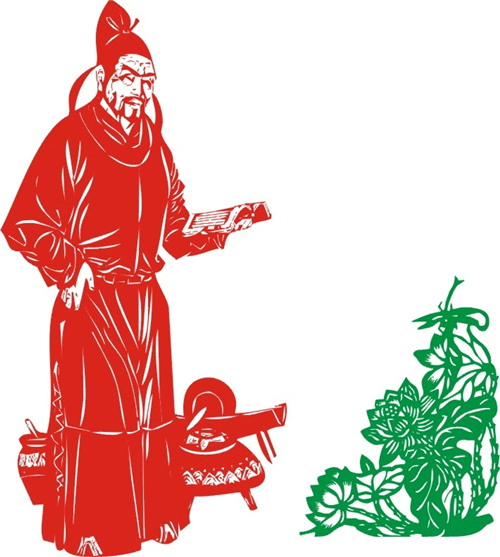Li Bai, courtesy name Taibai, literary name Qinglian Jushi, is a Chinese poet who rivaled Du Fu for the title of China’s greatest poet. Regarded as one of the greatest poets of the Tang Dynasty, often called China's "golden age" of classical Chinese poetry, Li Bai was both a prolific and a creative poet.
In the area of Chinese cultural influence, Li Bai's poetry has been much esteemed from his lifetime through the present day. His influence also extends to Japan and the West through many translations, adaptations, and much inspiration.

At age 24 he left home for a period of wandering, after which he married and lived with his wife’s family in Anlu (now in Hubei province). He had already begun to write poetry, some of which he showed to various officials in the vain hope of becoming employed as a secretary. After another nomadic period, in 742 he arrived at Chang’an (Xi'an), the Tang dynasty capital, no doubt hoping to be given a post at court.
In 756 Li Bai became unofficial poet laureate to the military expedition of Prince Lin, the emperor’s 16th son. He returned to eastern China, where he died in a relative’s house, though popular legend says that he drowned when, sitting drunk in a boat, he tried to seize the moon’s reflection in the water.
Li Bai was a romantic in his view of life and in his verse. One of the most famous wine drinkers in China’s long tradition of imbibers, Li Bai frequently celebrated the joy of drinking. He also wrote of friendship, solitude, the passage of time, and the joys of nature with brilliance and great freshness of imagination.
Around a thousand extant poems are attributed to him today. Thirty-four of his poems are included in the popular anthology Three Hundred Tang Poems.
